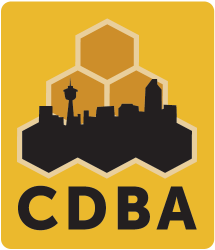-
April 6 and April 7, 2024
April 6, 2024 - April 7, 2024
9:00 am - 4:30 pm
Calgary and District Beekeepers Association (CDBA) is pleased to present a City of Calgary approved Beginner’s Beekeeping Course. This course surpasses the educational requirements for the City of Calgary beekeeping license. It covers the topics that you need to know to start beekeeping and become a hobby beekeeper in your own backyard. It is designed to provide the knowledge you will need for the entire beekeeping year.
When
April 6 and 7, 2024
-
-
- 12-14 hours of beekeeping instruction and hands-on practice.
-
Location
Spruce Cliff Community Center
3375 Spruce Dr SW, Calgary, AB T3C 3A3
Cost
$297.00 includes:
-
-
- a 2024 membership to the Calgary and District Beekeepers Association;
- PDF course notes;
- 12-14 hours of beekeeping instruction and hands-on demonstrations;
- lunch, snacks, and beverages;
- an apiary visit; and,
- a certificate of completion following attendance which is required for beekeeping in Calgary.
-
This 2-day beekeeping course is designed for beginners who are interested in starting their journey in beekeeping.
By the end of the course, participants should have a solid foundation for maintaining their own honeybee colonies and produce honey in their own backyard.
Topics include:
· Overview of beekeeping
· Honeybee biology, castes, and roles in the hives
· Introduction to essential beekeeping equipment, tools, and protective equipment
· City of Calgary by-Law regulations and urban beekeeping considerations
· Safety precautions for working with honeybees
· Buying your first bees and setting up your first hive
· Hive management and beekeeper responsibilities through the seasons
· Hive inspection, evaluation, and swarm prevention
· Honeybee health and bee diseases
· Honeybee parasites and pests with emphasis on varroa management
· Honeybee disease overview, prevention, and treatment
· Harvesting from the hive
· Beekeeping legal considerations, regulations, and resources
Your course registration includes a two-day in-person indoor session with a follow-up field session in late May/early June once the bees are out.
